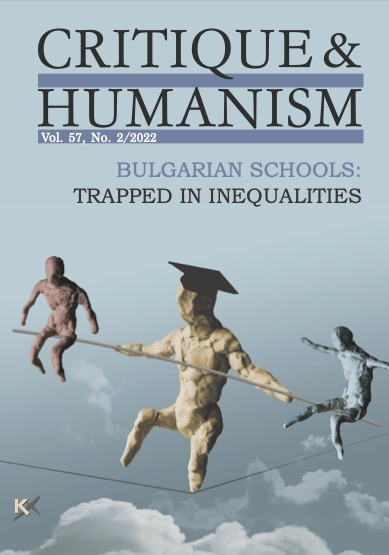Delegated Budgets and Educational Inequalities
Delegated Budgets and Educational Inequalities
Author(s): Svetlomir ZdravkovSubject(s): Social Sciences, Education, Sociology, Social Norms / Social Control, Sociology of Education
Published by: Фондация за хуманитарни и социални изследвания - София
Keywords: educational inequalities; sociology of education; school stratification; social inequalities
Summary/Abstract: Several consecutive waves of the PISA study have shown that Bulgarian students have the lowest scores in the EU in reading, mathematics, and science. The main problem of the Bulgarian education system is that it is one of the most polarized in Europe. The school network in the country is socially stratified. This article attempts to reveal the role of delegated budgets (the main mechanism for financial redistribution in the Bulgarian education system) in the process of stratification and increasing inequalities. For the purposes of this analysis, data from two types of empirical sources are used: data from a questionnaire survey of students, and qualitative data from interviews with school principals and focus group discussions with teachers. The findings of the analysis show that the marketization of education, which began with the introduction of delegated budgets in Bulgaria in the mid-2000s, has led to increasing inequalities and stratification of schools. It is argued that at least two parallel economic logics have emerged in different strata of the Bulgarian education system, which is due to the fact that schools operate in heterogeneous social contexts. The two different economic rationalities have momentous consequences. In the top tier of schools, those with high educational outcomes and prestige, competition leads to provision of higher-quality education and a variety of new learning opportunities. In the bottom tier of schools, those with low prestige and low educational outcomes, competition works on a very different principle from that in ‘elite’ schools. The economic-educational rationality there is towards lowering formal and practical internal requirements for students, ‘pushing’ students up to Grade 12 for financial reasons.
Journal: Критика и хуманизъм
- Issue Year: 2/2022
- Issue No: 57
- Page Range: 101-117
- Page Count: 17
- Language: English
- Content File-PDF

